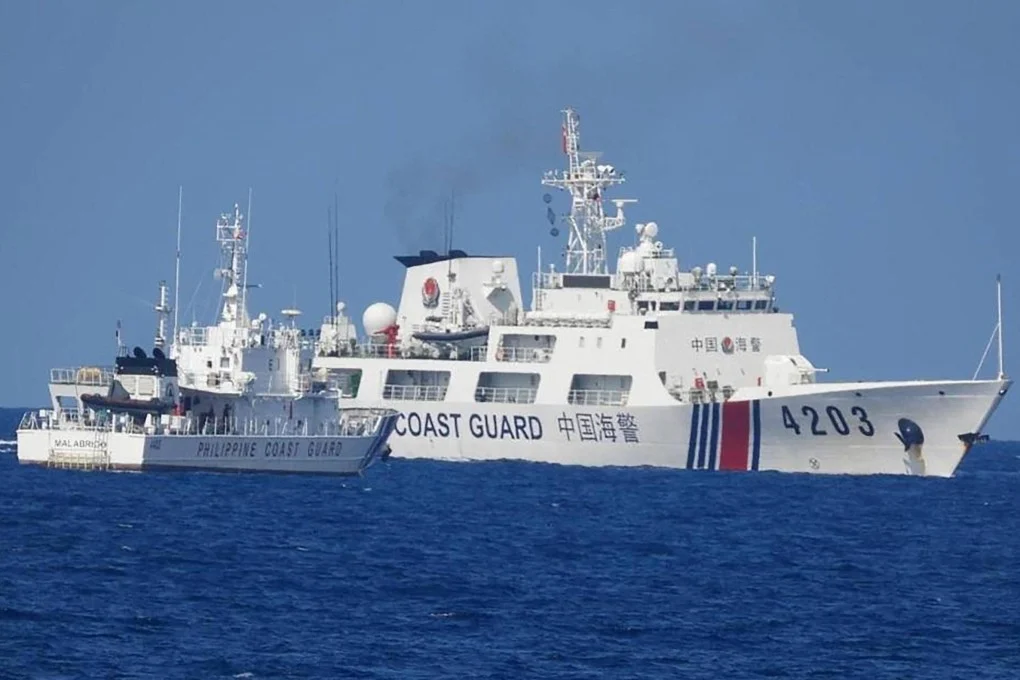China has continued to show aggression in South China as the Philippines tries to defend its territorial rights, thus leaving no scope for de-escalation and peace in the region. In a recent event, the Chinese Coast Guard rammed a Filipino vessel in Sabina Shaol. The unrelenting attacks and growing hegemony by China have led to calls in Philippines for the proactive intervention by the US.
The direct involvement of the US can flare up the ongoing conflict, especially, when major democratic nations have criticised Chinese expansionism in the South China Sea with the warnings of military responses by them. “The antidote is a stronger collective multilateral action against China,” said Philippine Defense Secretary Gilberto Teodoro Jr. Even Filipino army chief General Romeo Brawner Jr did not rule out the option of seeking direct US help if aggressive manoeuvres by China continued to occur.
There should be a “review” of the Philippine-US Mutual Defense Treaty (MDT) to counter China, said the Filipino Navy’s Rear Admiral Alexandar Lopez. The demand for direct US intervention arises out of the concern that the upgrades required for the Philippines’ naval forces to take on China would take many years. The US has sounded positive to the Filipino request.
It also invoked the treaty while condemning China’s dangerous and escalating actions in the South China Sea, and warned Beijing of military intervention to protect Filipino armed forces, public vessels, or aircraft.[4] China rammed into a Filipino vessel near the Sabina Shoal after it refused to leave as the Chinese Coast Guard claimed it was under its territory. Interestingly, the Sabina Shoal is just 75 nautical miles from the Philippines while around 630 nautical miles from China.
The Philippines’ National Maritime Council called the Chinese military manoeuvres “alarming” as diplomatic efforts are still underway to resolve the issue. “It calls into question China’s supposed commitment to de-escalate the situation in the area and create a conducive environment for dialogue and consultation,” the council said.
The South China Sea is contested as Beijing has laid claims on almost 90 percent of its area. China has not just violated the maritime boundaries of the Philippines and other ASEAN nations but also prevented their activities. Filipino forces have been fighting off the Chinese offensive to encroach upon the Spratly Islands, where located are Second Thomas Shoal and Sabina Shoal.
Chinese naval forces have resorted to different methods to obstruct the Philippines and other countries in the South China Sea such as opening fire at their vessels, manhandling crew, and damaging vessels. US State Department spokesperson Matthew Miller demanded China to “desist from dangerous and destabilising conduct”. At the same time, US ambassador to the Philippines MaryKay L Carlson said her country stood with the Philippines.
Chinese activities are aimed at prohibiting Filipino freedom of navigation within the latter’s exclusive economic zone, said Raymond Powell, director of an initiative called SeaLight, which tracks China’s activities in the South China Sea, at Stanford University’s Gordian Knot Center for National Security Innovation. “Their approach is that they can’t allow the Philippines to win or to visibly contest,” he said.
It is the Philippines and not Taiwan, which would cause a war in the Indo-Pacific, said US Navy intelligence officer Nick Danby. Manila too thinks the same way as the Philippines is restricting China from getting indisputable control over the crucial global shipping route and huge reserves of rich, rare minerals. Danby said Beijing’s judgment about the US military’s reluctance to intervene over a shoal has gone wrong.
A senior US official said “China is underestimating the potential for escalation. Our mutual defence treaty covers Philippine sailors and ships… China needs to examine its tactics or risk some serious blowback.” US President Joe Biden has reiterated its “ironclad” support to the Philippines from any military attack on Filipino armed forces, public vessels, or aircraft.
The greatest risk of a direct US-China military confrontation lies in the confrontation over a shoal control, said Bonnie Glaser, a China expert at Washington-based public policy think tank German Marshall Fund. “If Beijing directly attacks Philippine ships or armed forces, Washington would be compelled to respond. A major political crisis between the US and China would ensue, and, at worst, a wider military conflict,” she said.
thehongkongpost.com

